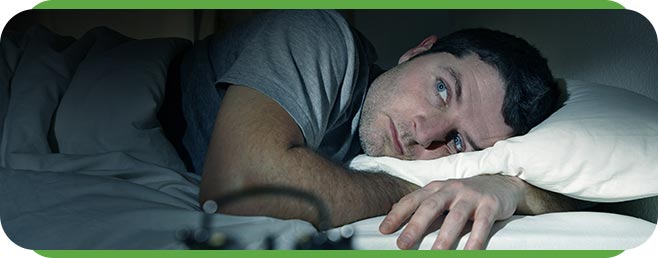What Happens With Extreme Sleep Deprivation?
Extreme deprivation can cause cognitive deficits, mood swings, irritability, obesity, diabetes, cardiovascular problems, and a weakened immune system. Before the situation gets out of hand, visit Koala® Center For Sleep & TMJ Disorders. For more information contact us or book an appointment online. We have convenient locations across the U.S. in Bloomington IL, Peoria/Dunlap IL, El Paso TX, and Wausau WI.


Table of Contents:
What happens with extreme sleep deprivation?
What are the symptoms of extreme sleep deprivation?
How long does it take to recover from bad sleep deprivation?
Extreme sleep deprivation can have significant and alarming effects on both the mind and the body. When you consistently fail to get good quality sleep, which is 7 to 9 hours per night for adults, the consequences can be quite severe.
Sleep deprivation can lead to cognitive deficits, meaning it affects your memory, decision-making, and problem-solving skills. Concentration and focus also become compromised, leading to decreased productivity and more frequent errors. Furthermore, mood swings, irritability, and heightened emotional reactivity are common with severe sleep deprivation. This can strain your relationships and impair your mental wellness.
Chronic sleep deprivation is also associated with a higher risk of various health issues, including obesity, diabetes, cardiovascular problems, and a weakened immune system. Prolonged sleep deprivation can trigger hallucinations and feelings of paranoia, as the mind becomes much more susceptible to sensory distortions and false perceptions.
In extreme cases, your brain may experience “microsleeps” where it momentarily shuts down, even if your eyes remain open. This can happen during activities such as driving, leading to accidents. In the most severe cases, prolonged sleep deprivation can lead to psychosis, which is a state characterized by delusions, hallucinations, and a sensation of detachment from reality.
It’s crucial to prioritize and maintain healthy sleep habits to prevent these dire consequences. If you find yourself constantly sleep-deprived, you should plan a visit to a professional to address any underlying disorders or lifestyle aspects that are contributing to your lack of sleep.
Some of the common symptoms associated with insufficient sleep include:
• Fatigue – The most obvious symptom is an overwhelming sense of tiredness and lack of energy throughout the day.
• Poor concentration – Sleep-deprived individuals will struggle to focus, make decisions, and complete tasks effectively.
• Memory problems – Difficulty remembering and retaining information is a telltale sign of sleep deprivation.
• Mood instabilities – Irritability, mood swings, and increased emotional sensitivity are common symptoms.
• Reduced coordination – Hand-eye coordination and fine motor skills can be compromised due to fatigue.
• Increased appetite – Sleep deprivation can lead to increased cravings for unhealthy foods.
• Headaches – Frequent headaches are a common symptom of chronic sleep deprivation.
• Decreased libido – A lower interest in sexual activity can be a result of poor quality sleep in both men and women.
• Hallucinations – In severe cases of sleep deprivation, especially distressing symptoms such as hallucinations and paranoia can occur.
If you experience any of these symptoms and believe they are linked to your sleeping habits, it’s advised to consult a sleep professional to get to the bottom of what’s causing the problem.
In cases of short-term or acute sleep deprivation, which can result from an occasional all-nighter or a few nights of poor-quality sleep, recovery can be relatively swift. One or two nights of quality sleep can usually sufficiently restore energy levels and cognitive functioning. However, it’s essential to address the root cause of sleep disruption to prevent it from becoming a chronic issue.
Chronic or long-term sleep deprivation, often caused by ongoing lifestyle factors or untreated sleep disorders, will require a more extended recovery period. In these cases, it can take weeks or even months to fully recover, as the body and mind need time to adjust to healthier sleep patterns. During this period, focusing on consistent sleep schedules, creating a sleep-conducive environment, and practicing good sleep hygiene are all very important.
It’s also worth noting that while recovery is possible, some people experience lingering effects, especially if sleep deprivation has led to chronic health issues or mental health concerns. In such cases, support from a sleep doctor is especially recommended to address the underlying health problems.
Ultimately, the key to a successful recovery from sleep deprivation is making sleep a priority and focusing on adopting habits that support restorative rest. This is a process that involves patience and commitment to a healthy sleep routine, but the benefit of improved wellness makes it well worth the effort.

Additional Services You May Need
▸ KoalaKIDZzz®
▸ Sleep Apnea
▸ Snoring
▸ TMJ Disorder
▸ Fatigue
▸ Sleep Disorders
▸ Weight Loss
▸ CPAP Alternative
▸ Oral Appliances




